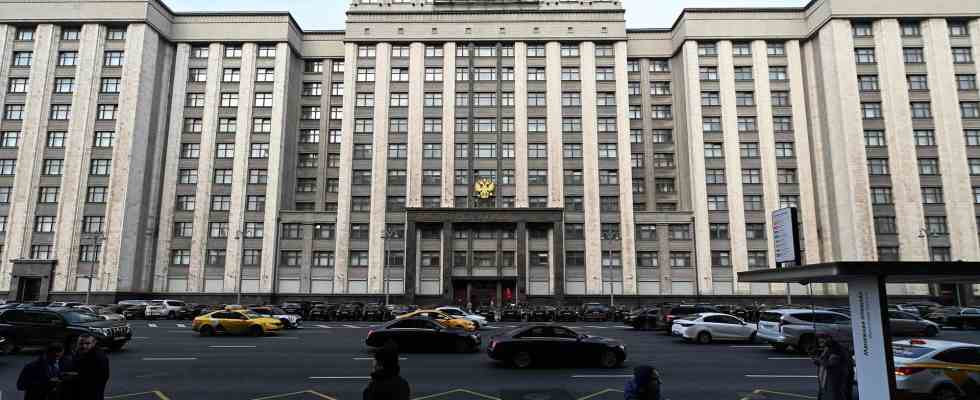Status: 03/14/2023 7:54 p.m
Russia has increased penalties for criticizing the war in Ukraine. The Wagner troupe receives a special status. According to government critics, further tightening is only a matter of time.
The members of the Duma voted almost unanimously in favor of tightening the law, which extends penalties for criticism of the war in Ukraine. So far, the discrediting of the Russian army and the authorities involved could result in prison sentences, but this is now being extended to voluntary organizations such as the Wagner troupe, which is deployed in the fiercely contested town of Bakhmut. Likewise on private helpers or organizations that support the Russian armed forces. Instead of a maximum sentence of five years, there are now seven years.
Parliament leader Vyacheslav Volodin had previously urged people to vote for the changes. “Nowadays, every soldier and officer, whether they belong to a military formation or are a volunteer, must be sure that lying and slander directed towards them will be punished and protected by law,” he said. Parliament will take such a decision.
With this, Volodin was also referring to the second part of the legislative package, which relates to the dissemination of so-called fake news about the deployment of Russian fighters in Ukraine. It is therefore a punishable offense to report in Russia on civilian Ukrainian victims of the Russian war of aggression, as well as on war crimes – regardless of whether they were committed by Russian soldiers or voluntary organizations. The maximum sentence here: 15 years in prison.
Student sentenced to years in prison
Public criticism or spreading reports about civilian victims of the war against Ukraine already resulted in severe penalties. A former student at Moscow’s Lomonosov University was sentenced to eight and a half years in prison last week.
The Russian best-selling author Dmitry Glukhowsky has also been charged in absentia for posting news about atrocities against Ukrainian civilians in Bucha and Irpin on his social media channels, among other things. He reports how in his case the accusation was ultimately justified:
“The investigators and the secret service agents and now the prosecution say that I am manipulating information about the Russian army in Ukraine for reasons of political hatred against Vladimir Putin in order to discredit the Russian army,” says Glukhowsky. That is the real charge. They didn’t check his information at all. “They say Putin says that and the army leadership says that – but Dmitry Glukhovsky says it’s war and that’s why he’s lying.”
So far there has been no widespread protest in Russia
There is no widespread protest against the war in Russia. Alexey Venediktov, the former editor-in-chief of the dissolved radio station Echo Moskvy, believes that the Kremlin believes that the tightening of the law is necessary because a certain war-weariness is spreading among the population.
In an interview with the ARD Studio Moscow he says: “So far there has been no danger of mass demonstrations and revolutions. But they want to suppress dissatisfaction with carrots – i.e. payments – and at the same time with the stick – i.e. fear through repression – and we’re seeing that right now.” Since there are no signs that Kremlin chief Putin is deviating from his course in Ukraine, further tightening of the law is only a matter of time.
Duma extends penalties against war opponents
Stephan Laack, ARD Moscow, currently Cologne, March 14, 2023 5:35 p.m

